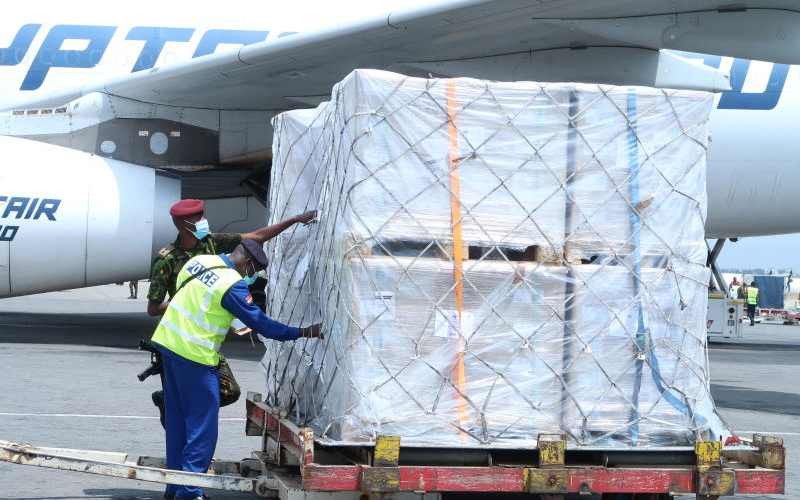×
The Standard e-Paper
Fearless, Trusted News

Police officers verify Presidential ballot papers at JKIA. [Wilberforce Okwiri, Standard]
Azimio la Umoja One Kenya Coalition has written to the Independent Electoral and Boundaries Commission (IEBC) chairman Wafula Chebukati over what it terms as two suspicious activities observed in the printing of electoral materials in Athens, Greece.